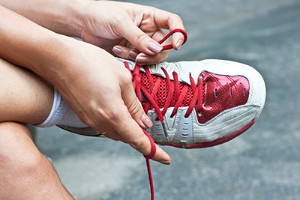Richfield (435) 896-6497
Ephraim (435) 283-4076
Selecting the Ideal Shoe for Running
Tuesday, 17 October 2023 00:00
Choosing the right running shoe is essential for an enjoyable and injury-free run, regardless of your running style. For road running, opt for cushioned shoes that provide ample shock absorption and support for consistent, even surfaces. Trail running demands shoes with a sturdy outsole, strong traction, and added stability to handle uneven, rugged terrain. If you are interested in sprinting and short-distance runs, lightweight shoes with spikes or cleats offer the grip and speed you need. For long-distance running, prioritize comfort, arch support, and ample cushioning to endure the extended impact on your feet. Minimalist shoes are designed for runners seeking a barefoot-like experience, promoting a natural stride and strengthening foot muscles. Understanding your running style and the surface you'll be running on will guide you in finding the perfect pair that complements your unique needs and preferences. If you would like more information about the type of running shoes to purchase for various running styles, it is suggested that you consult a podiatrist who can provide you with the information you are seeking.
If you are a runner, wearing the right running shoe is essential. For more information, contact Dr. Blake Zobell from Utah. Our doctor can provide the care you need to keep you pain-free and on your feet.
Choosing the Right Running Shoe for Your Foot Type
To increase performance and avoid the risk of injury, it is important to choose the right running shoe based on your foot type. The general design of running shoes revolves around pronation, which is how the ankle rolls from outside to inside when the foot strikes the ground.
- Neutral runners are able to choose from a wide variety of shoes, including minimalist shoes or even going barefoot.
- Runners who overpronate, or experience an over-abundance of ankle rolling, should choose shoes that provide extra motion control and stability.
- Runners who underpronate, or supinate, have feet that have high arches and lack flexibility, preventing shock absorption. They require shoes with more flexibility and cushion.
If you have any questions please feel free to contact one of our offices located in Richfield and Ephraim, Utah . We offer the newest diagnostic and treatment technologies for all your foot and ankle needs.








